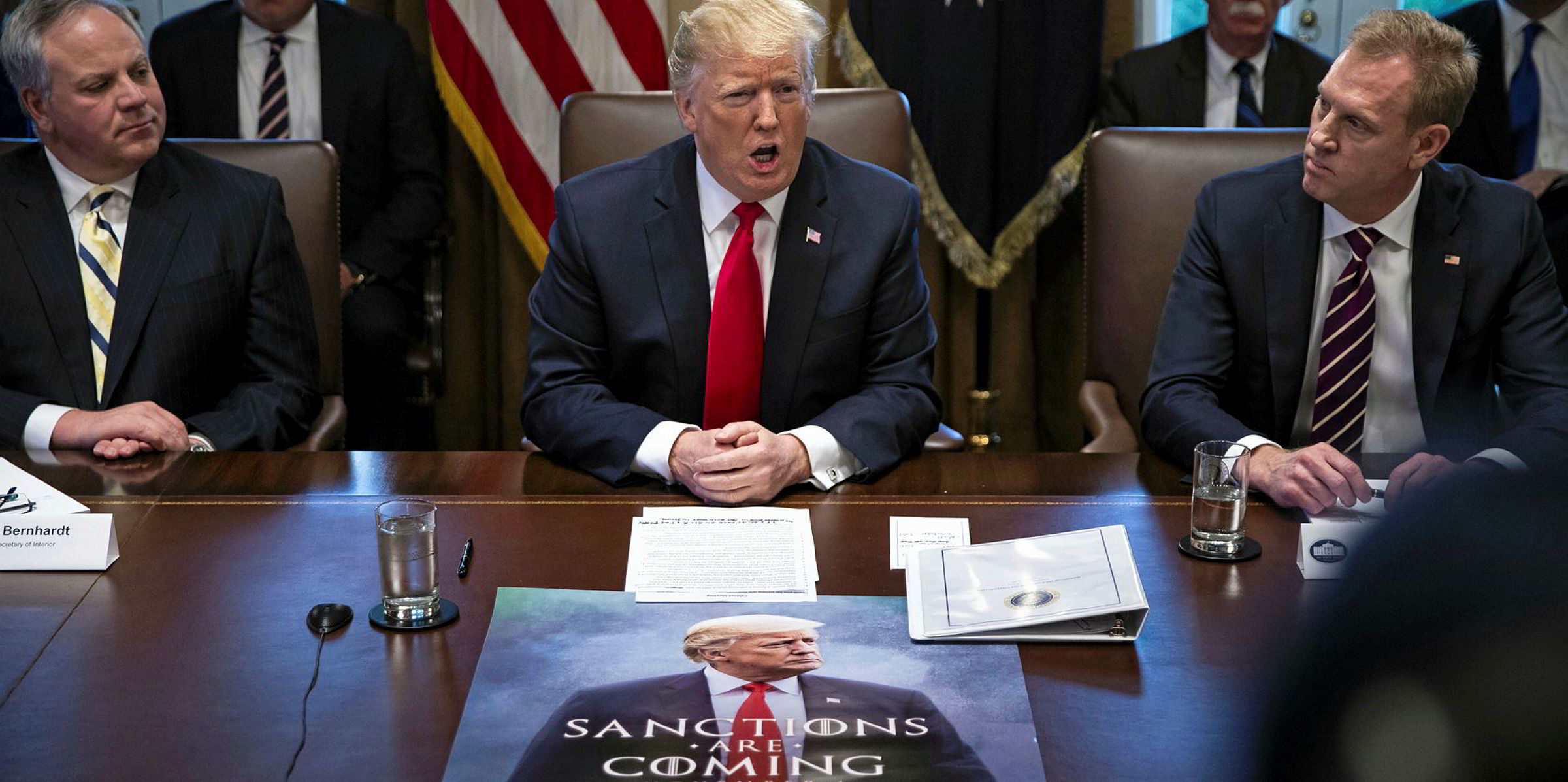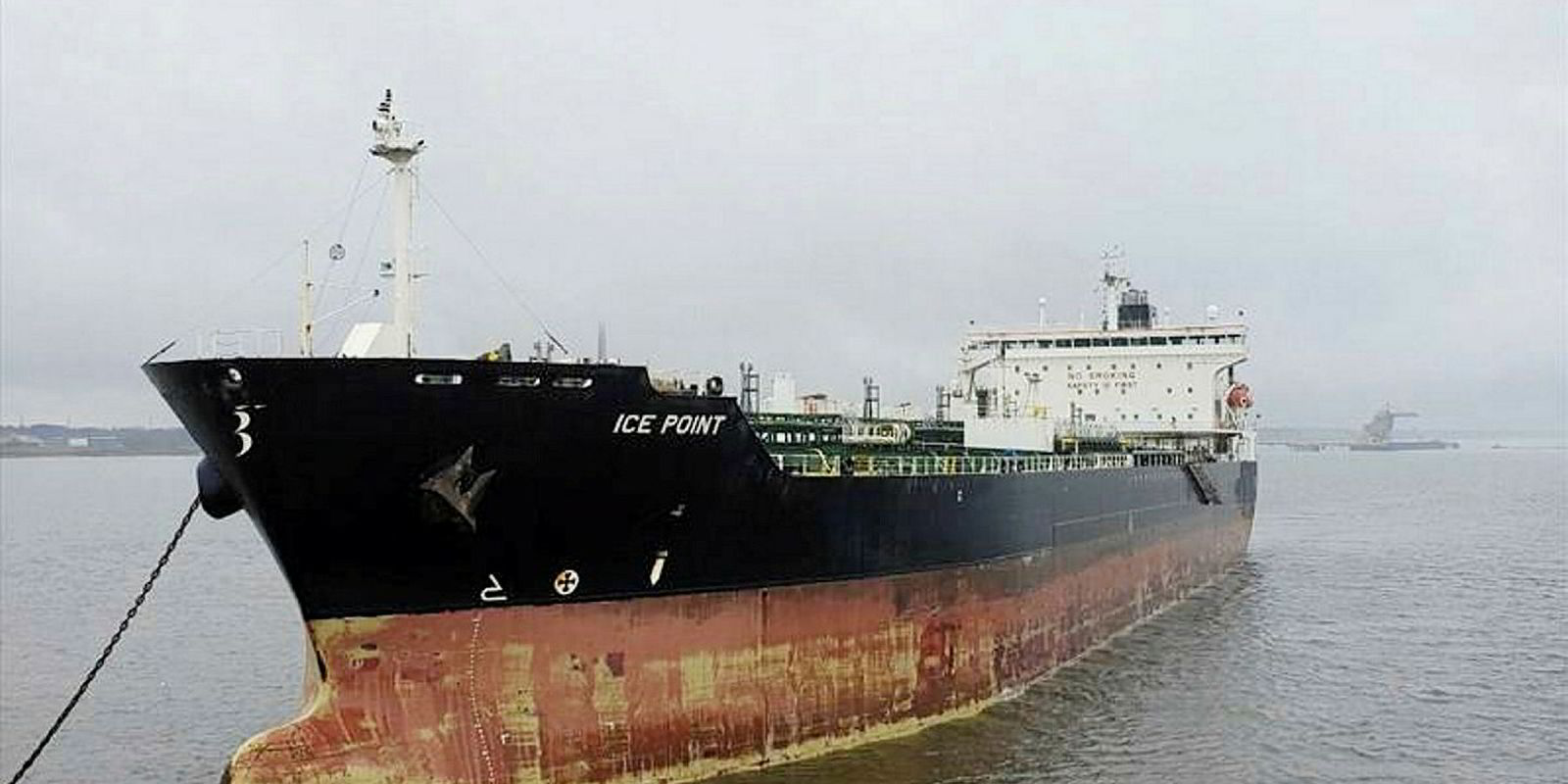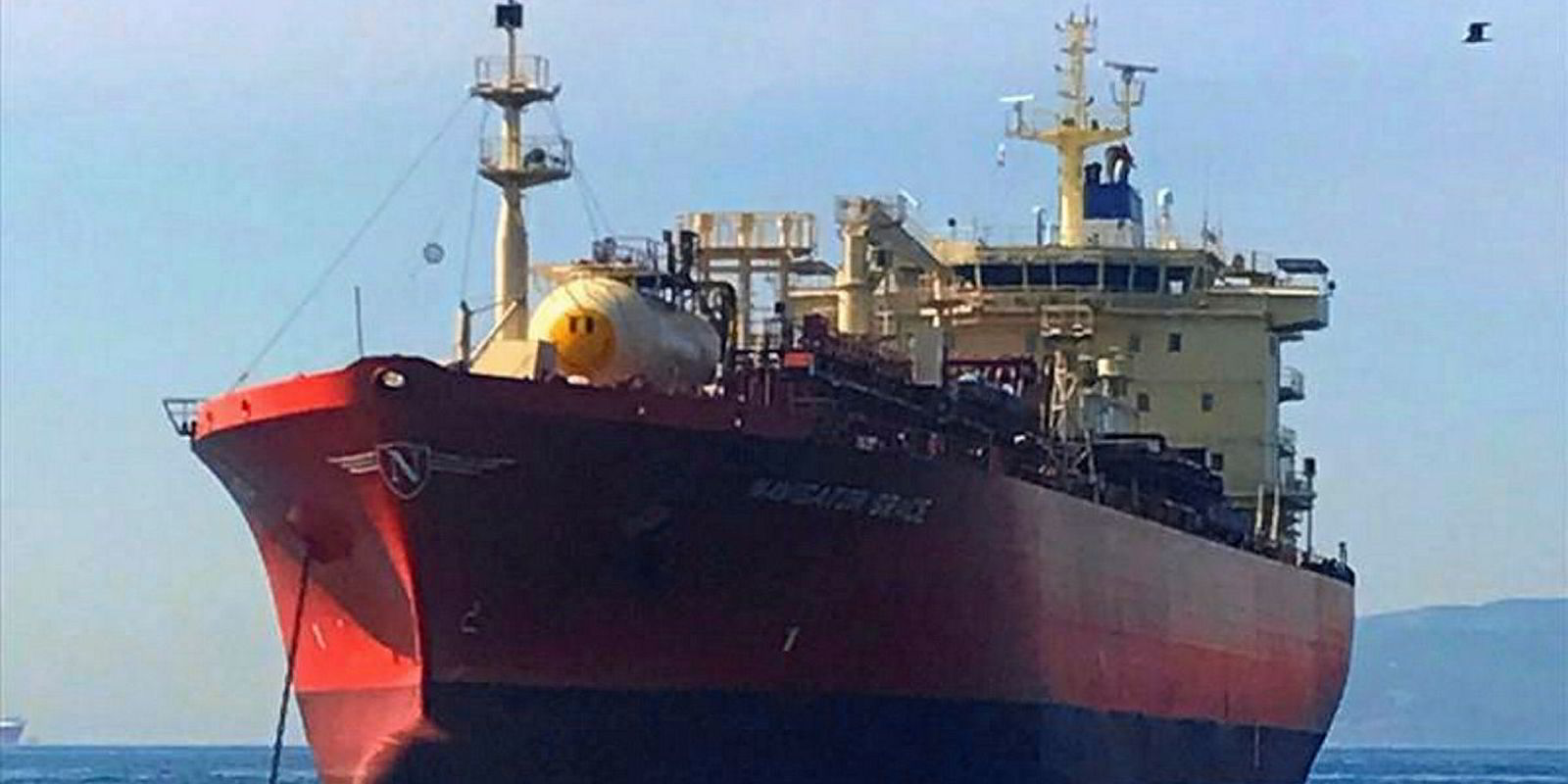The US Department of the Treasury's newfound interest in shipping is worrying tanker owners — and in some cases they are running scared.
Industry sources tell TradeWinds that the federal government appears to be paying closer attention to the sector than its predecessors, particularly as it mounts pressure on Venezuela and Iran.
The government appears to be using AIS data to track where ships are going and Venezuela-related sanctions have led to some classes of tanker fleeing the region.
New degree of scrutiny
"2019 has been a pretty busy year for the US Treasury Department's Office of Foreign Asset Control," Reed Smith partner Jane Freeberg Sarma said at a recent Marine Money event.
"OFAC is focusing on shipping to a degree we haven't seen before."
Sarma and Blank Rome's Matthew Thomas say the biggest shot across the bow to shipping from OFAC were March's warnings over trading to North Korea and dealing with Syria and Iran.
Neither of the two warnings threatened action against ships, owners or companies. But they did implicate dozens of ships in sanctions-busting, and told everyone from financiers to brokers and managers that they may come into the federal government's sights should the behaviour continue.
Deceptive practices
OFAC also named "deceptive practices", such as engaging in ship-to-ship (STS) transfers and disabling AIS, as ways vessels get around sanctions. In the case of North Korea, it asked insurers to mandate AIS use as a condition of coverage.
The underlying issue is that the US is signalling it is watching shipping very closely, especially the tanker industry
Matthew Thomas
Thomas said some in the industry feel the list is unfair, as it includes vessels that delivered cargoes via STS transfers in third countries, without any reason to expect the cargo would end up in Syria.
"The underlying issue is that the US is signalling it is watching shipping very closely, especially the tanker industry," he said.
Blacklist
The US government has also hit out strongly against ships transporting Venezuelan oil — listing 46 ships as "specially designated nationals" for alleged relations with state oil company PDVSA.
Others have been added to the list — which blocks the entity from doing business in the US — for trading in Venezuela. Among them were two Greek-owned tankers and a Liberian-owned ship.
Italian owner PB Tankers and five of its six vessels were on the list until Wednesday, when OFAC announced they had been removed.
According to VesselsValue chief operations officer Adrian Economakis, the sanctions have seen aframax traffic to Venezuela fall since the beginning of the year.
Total aframax tonnes per day to the country have fallen from more than 200,000 in January to less than 50,000 by March, according to VesselsValue data. Ballasted tonne-mile demand to the entire Caribbean has fallen over the same period from more than 10 billion tonne miles early in 2019 to less than four billion in April.
Operational difficulties
"From a shipowners' perspective, the recent sudden update of sanctions, especially concerning Venezuela, has caused operational difficulties," Economakis said in an email.
"This can be a significant issue in the often low earnings environments for many vessel classes. As earnings over the last few years across most sectors have been near break-even levels, then increased costs related to sanctions can lead to potential significant issues for owners."
Thomas, who in part represented PB Tankers in its petition to be removed from the OFAC list, said owners need to be educated, focus on their compliance policies and procedures and do their due diligence.
"Nobody wants to be surprised by the next move by the US," he said.








